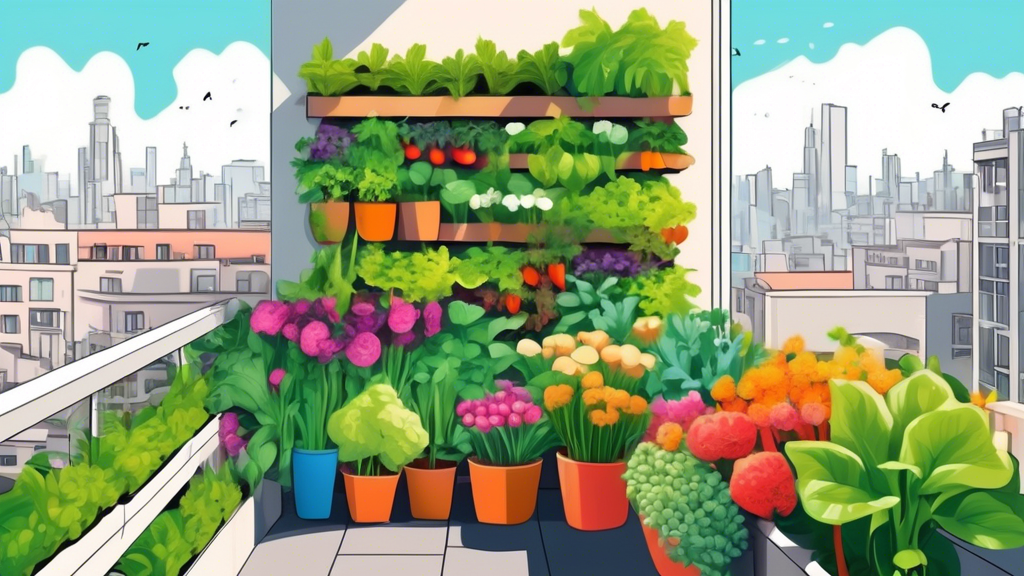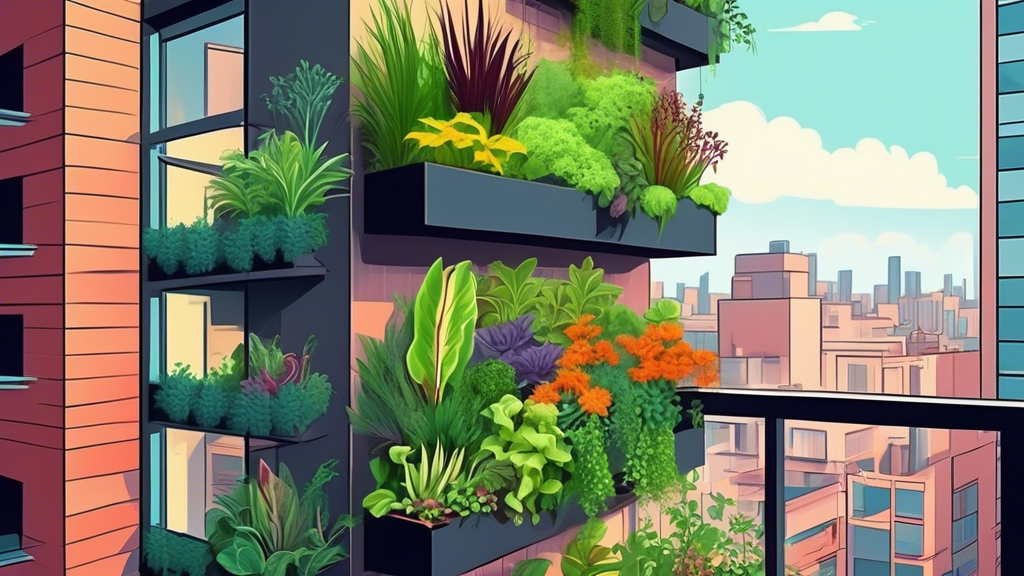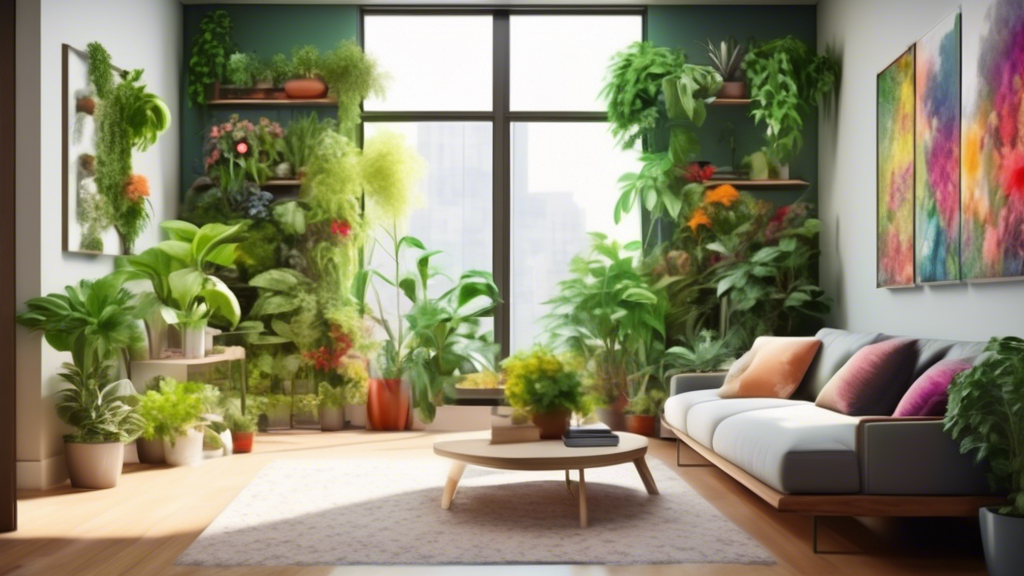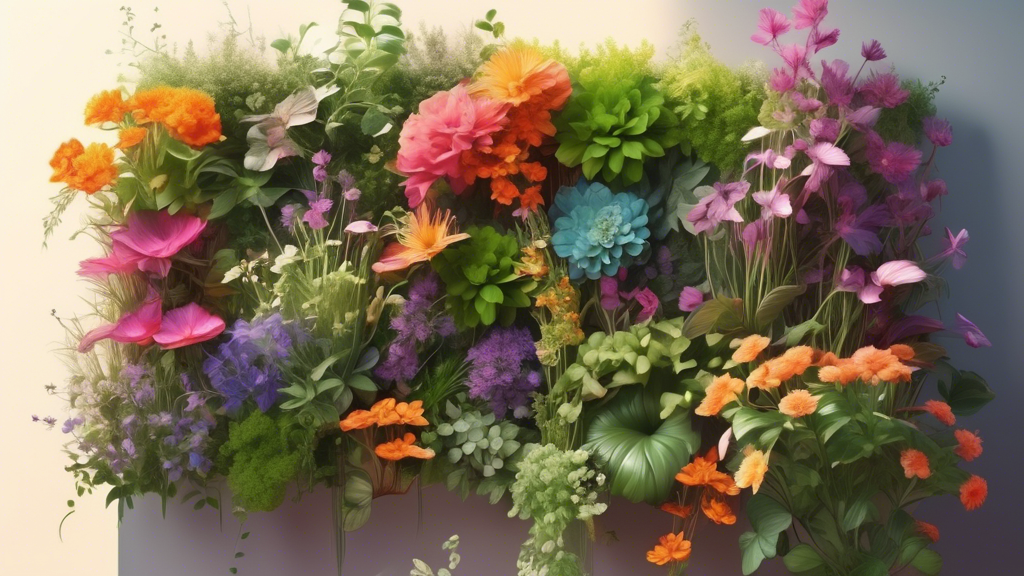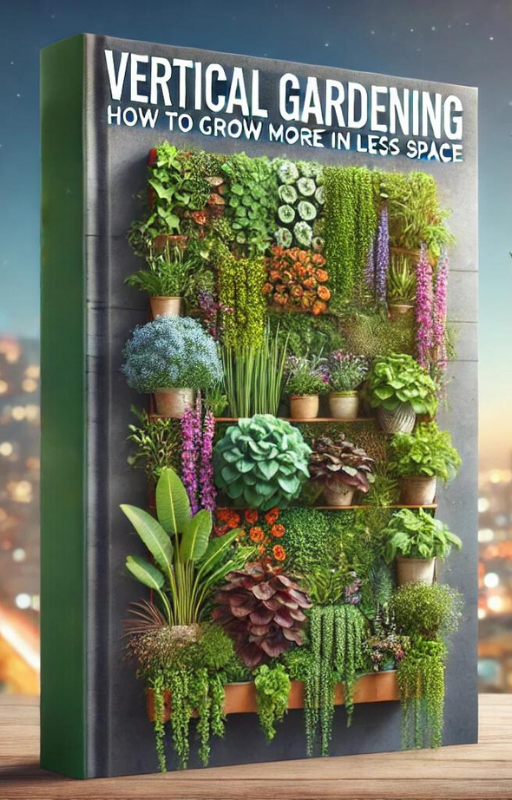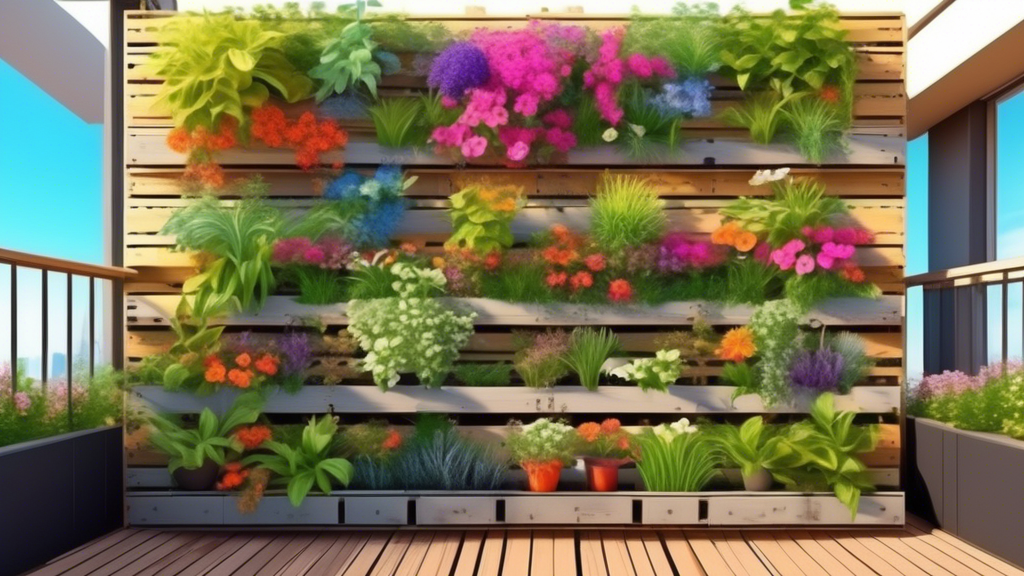
Introduction to DIY Vertical Garden Projects You Can Do at Home
A vertical garden is a space-saving method of growing plants upward on structures like walls, fences, or freestanding frames. These gardens offer numerous benefits, including maximizing limited space, enhancing aesthetics, improving indoor air quality, and making gardening more accessible by reducing the need to bend or kneel. This guide will introduce you to a variety of DIY vertical garden projects suitable for all skill levels, empowering you to create your own green oasis at home.
Why You Should Start a DIY Vertical Garden Project at Home
Solving Common Gardener Challenges
Many gardeners face obstacles that can discourage them from cultivating plants. Vertical gardens provide innovative solutions to these common issues:
- Limited Growing Area: Perfect for small balconies, patios, or urban settings where horizontal space is scarce.
- Unsuitable Ground Soil: Use controlled potting mixes to bypass poor or contaminated soil entirely.
- Physical Strain: Elevate plants to a comfortable height, making gardening easier for those with mobility concerns.
- Pest and Weed Management: Elevated planters are less susceptible to ground-dwelling pests and simplify weed control.
Planning Your DIY Vertical Garden
Choosing the Perfect Location
Selecting the right spot is crucial for your garden’s success. Consider these factors:
- Sunlight Exposure: Most edible plants require 6+ hours of direct sun daily.
- Water Access: Position near a water source for convenient irrigation.
- Structural Support: Ensure walls or fences can bear the weight, or opt for freestanding structures.
Selecting the Right Plants for Vertical Growth
Choose plants that naturally thrive in vertical environments:
- Ideal Choices: Herbs (basil, mint, thyme), leafy greens (lettuce, spinach), strawberries, succulents, and trailing flowers (petunias).
- Plants to Avoid: Large, heavy vegetables like corn or traditional tomatoes (though some compact varieties can work with proper support).
DIY Vertical Garden Projects You Can Build
Beginner-Friendly Projects
The Pallet Garden: Source an untreated wooden pallet, prepare it by sanding and lining with landscape fabric, then fill with soil and plants.
Hanging Shoe Organizer Garden: Use a fabric or plastic organizer pockets to grow herbs and small greens—simply fill each pocket with soil and plants.
Intermediate Projects
The Gutter Garden: Mount rain gutters to a fence or wall for a sleek, modern planting system ideal for shallow-rooted plants.
The Ladder Garden: Repurpose an old wooden or metal ladder as a stylish tiered plant stand for potted plants.
Advanced & Unique Projects
Living Wall with Irrigation: Construct a framed panel with felt pockets and integrate a simple drip irrigation system for optimal watering.
Repurposed Picture Frame Succulent Garden: Create stunning living art by planting succulents in a shallow frame filled with soil and moss.
The Secret to Watering Your Vertical Garden (Something You Might Not Know)
The Top-Down Dilemma
Water poured at the top often fails to reach lower plants, leading to dry roots at the bottom and messy runoff.
Pro Tips for Success
The “Thirsty Middle” Layer: Incorporate sphagnum moss or coco coir in the center of planters. These materials act as natural reservoirs, wicking moisture evenly throughout the structure.
Drip Irrigation is King: For larger setups, a simple DIY drip system ensures consistent, water-efficient hydration to all plants.
Vertical Garden Project Showdown: A Quick Comparison
| Project | Cost Estimate | Skill Level | Best For | Watering Ease |
|---|---|---|---|---|
| Pallet Garden | Low | Beginner | Herbs, Succulents | Moderate |
| Gutter Garden | Low | Intermediate | Leafy Greens, Herbs | Easy |
| Shoe Organizer | Low | Beginner | Herbs, Small Greens | Easy |
| Living Wall | High | Advanced | Succulents, Flowers | Tricky |
Maintaining Your Thriving Vertical Garden
Regular care ensures your garden remains healthy and productive:
- Watering: Check moisture levels frequently, as vertical planters dry out faster.
- Fertilizing: Nutrients can wash out quickly; use slow-release fertilizers or liquid feeds every 2-4 weeks.
- Pruning: Trim overgrown plants to maintain shape and encourage new growth.
- Seasonal Care: Protect sensitive plants from frost, and consider bringing portable gardens indoors during winter.
Frequently Asked Questions (FAQs) About DIY Vertical Gardens
What is the cheapest way to make a vertical garden?
Repurposed plastic bottles or a fabric shoe organizer are among the most budget-friendly options, often using materials you already have at home.
How do I prevent my vertical garden from leaking or rotting my wall?
Use a waterproof backing like pond liner, ensure each planter has adequate drainage holes, and maintain a small air gap between the garden and the wall to promote airflow.
Can I grow vegetables like tomatoes in a vertical garden?
Yes, but choose determinate (bush) varieties or cherry tomatoes and ensure the structure is sturdy enough to support their weight and root depth.
Do vertical gardens need special soil?
A lightweight, well-draining potting mix is essential. Avoid heavy garden soil, which can compact and retain excess moisture, leading to root rot.
Conclusion: Start Your DIY Vertical Garden Project at Home Today
Creating a vertical garden is a rewarding way to enhance your living space, regardless of your gardening experience. With projects ranging from simple repurposed items to elaborate living walls, there’s an option for every skill level and budget. Select a project that fits your space and needs, and take the first step toward bringing more greenery into your home life today.
